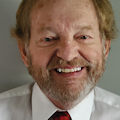Our challenging vocation rewards us in numerous ways. If done well, it affords a comfortable lifestyle. (The Bureau of Labor Statistics contends that general dentists’ 2023 base salary of $191,7501 is just over three times the average American’s wage of $59,384.2) Our careers also provide the innate satisfaction of completing intricate tasks well, and practitioners are respected—even admired—members of society, to list but a few recompenses.
Despite these advantages, few dentists would argue that within our chosen calling, melancholy also abides. It begins with an extremely expensive eight-year (or longer) death march through professional education. Once established in practice, our suffering may be physical, such as carpal tunnel syndrome, muscle spasms, or an unhappy back. (I’m currently being evaluated for spinal surgery.) It can present as emotional misery, as high stress, frustration, and exhaustion prove disagreeable bedfellows that can adversely affect every facet of one’s existence. It may be psychological. To cite one small example, few other professionals are told to their faces, “No offense, Doc, but I hate dentists!” Anguish is often bequeathed by a combination of these three plus numerous other factors.
Why does such torment exist? Perhaps primarily because providing consistently excellent oral health care (or anything else) is demanding and draining. Dentistry has always been hard for me, and while I’ll discuss stratagems I’ve used to mitigate misery, I never eliminated it.
A good team is critical
No person is an island, and dentistry is impossible to enjoy for an unsupported doctor. Consistent happiness is only attainable in offices occupied by pleasant, mature, supportive people dedicated to their jobs and each other’s mutual well-being.
Understanding that staff make or break every office, the hiring process in my practice involved the entire team and took four weeks to complete. Previous experience is a significant advantage, but rarely found in our corner of the world. During the job interview, my primary goal was to discern if the candidate was outgoing and fun to talk with, because you can’t teach personality. I next considered work ethic, which seems chimeric in today’s youth. Once I’d done my best to hire the right people, we painstakingly cross-trained these friendly, hardworking folk to blend into and bolster our cohesive team.
My most effective team-building activity was staff meetings, which were held for two hours every two weeks for 40 years. All employees contributed to our written and timed agenda, and leadership rotated through everyone except dentists, who must consider this a listening exercise during which they can learn about teammates’ perceptions and concerns. A high-trust atmosphere fostering honest feedback facilitates the creation of a satisfied and unified group with mutual and clearly understood objectives.
Stagnation is a threat to fulfillment
GV Black, the father of modern dentistry, famously stated, “A professional man has no right to be other than a continuous student.”3 I can’t speak to “rights,” but I raise all the fruits and vegetables I consume, and in my garden, things that aren’t growing are dying. If one’s entire career is a replication of their senior dental school year, no wonder they’re bored! To thrive, one must never quit developing.
In typical small-town fashion, I was protean. With the invaluable aid of N2O, I treated virtually 100% of my pedodontic patients. I also performed extractions, handled advanced perio, routinely executed molar endo, and succored TMD suffers with definitive care, including orthotics and full-mouth equilibrations. Removable prosthetics were my least difficult, yet most lucrative procedure. Using conscious sedation, which for me was 2.5 mg Valium administered orally in-office an hour before an appointment (enhanced with N2O if needed), allowed treatment of phobics, many of whom, in their terror, had suffered for years. During my last two years of practice, I added Six Month Smiles to my extensive orthodontic and orthopedic skills and found the system excellent.
This diversity of ability was part of the reason I never suffered a “business problem” despite doing little external marketing. I also found the challenge of learning invigorating, and possessing a broad talent set professionally and financially rewarding. My staff took pride in our ability to perform almost any dental procedure for virtually any patient.
Perfectionism is a sin
Especially in our challenging metier, it is imperative to understand that while one can (and should) control effort, no one can control results. That way lies madness! Research states that 2% to 14% of root canals fail, including some of mine.4 I’m glad I don’t know what percentage of mandibular blocks didn’t provide profound anesthesia after one injection. (Some days, it seemed close to 100%.) Occasionally, crowns required a second impression. And so on.
My policy was to refund or retreat any care that didn’t satisfy my patient. (Virtually 100% chose retreatment.) If they weren’t happy, I wasn’t either. I felt this was the right thing to do; it helped me sleep well and was instrumental in building my extensive group practice. The Golden Rule is an excellent starting place when searching for sustained peace. (A new patient once told me he came to our office because he heard I would do whatever it took to get things right. While this falls short of being hailed as a genius, I was proud of this reputation.)
Fostering trust
Exhibiting consistent honesty and honor in all aspects of existence forms the foundation of leadership. No one fools teammates who are around them 40 hours a week. Acts, both good and bad, eventually produce logical consequences. One must always treat staff fairly—even generously—and all clinical decisions must be consistent with patients’ best interests rather than being self-serving.
If it’s to be, it’s up to me
Someone runs every office, and if the dentist doesn’t, staff or patients will. Only doctors have the education, training, and authority necessary to attain the practice of their dreams. Many dentists don’t want to accept this truth, but like it or not, they must be the boss! If you want it, become worthy, then earn it. I wish you Godspeed.
References
- Occupational employment and wages, May 2023. Bureau of Labor Statistics. https://www.bls.gov/oes/current/oes291021.htm
- Punjwani M, Colburn B, Campbell S. Average salary in the US in 2024. USA Today. April 3, 2024. https://www.usatoday.com/money/blueprint/business/hr-payroll/average-salary-us/
- Jain S, Jain H. Legendary Hero: Dr. G.V. Black (1836-1915). J Clin Diagn Res. 2017;11(5):ZB01-ZB04. doi:10.7860/JCDR/2017/17462.9813
- Tabassum S, Khan FR. Failure of endodontic treatment: the usual suspects. Eur J Dent. https://www.ncbi.nlm.nih.gov/pmc/articles/PMC4784145/
Editor's note: This article appeared in the June 2024 print edition of Dental Economics magazine. Dentists in North America are eligible for a complimentary print subscription. Sign up here.
About the Author

John A. Wilde, DDS
After eight years of higher education, paying 100% of the cost himself, John A. Wilde, DDS, spent two years in the Army Dental Corps before beginning a practice from scratch in Keokuk, Iowa. By age 30, he was debt-free, owning outright his new country home and the practice he had designed and built. By 40, he was financially able to retire. At age 53, he fully retired. Dr. Wilde has authored six books and more than 220 articles, and may be reached at (309) 333-2865 or [email protected].


